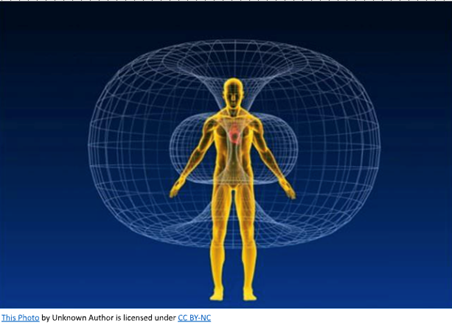Because February is generally associated with Valentine’s Day, I thought I would focus this month’s newsletter on Heart Function.
Part of understanding how your heart functions also requires a focus on proper maintenance of your cardiovascular health, so we’ll cover general cardiac health, cholesterol, statins, frequency & energy balance, and then I will wrap-up with post-Covid cardiovascular health recovery.
General Cardiac Health – Diet & Exercise
Most of this you may have heard before, but let’s review because it is a baseline of information that does really matter.
Omega-3 Fatty Acids: Super important for healthy circulation and reduces inflammation that can cause plaquing/cardiac disease regardless of your cholesterol numbers.
- fatty fish (such as salmon, mackerel, and trout)
- flaxseeds
- chia seeds
- walnuts
- olive oil, coconut oil, grass fed butter
Healthy Fiber Intake:
- Include whole grains, fruits, vegetables, legumes, and nuts to boost fiber intake.
- Fiber helps your gut microbiome to balance itself, leading to better digestion, reduced inflammation, reduced blood sugar, and improved circulation.
Herbal Support:
Use herbs, spices, and other seasonings to flavor your food to encourage better circulation, decreased inflammation, and overall improved adaptogenic cellular function (the body’s ability to adjust to stress and preserve balanced health).
- Turmeric
- Rosemary
- Thyme
- Garlic
- Cinnamon
- Cumin
Limit Added Sugars:
- Minimize the consumption of sugary beverages, alcohol, candies, and processed foods with added sugars.
- Choose natural sources of sweetness like fruits, maple syrup, honey, and molasses
Stay Hydrated:
- Drink half of your body weight in ounces per day of filtered water (ex: 180 lbs drink 90 ounces of water/day). This assists your tissues to be hydrated and allows for better delivery of nutrients to your tissues as well as removal of toxins. Staying hydrated will fuel your body’s innate ability to heal itself.
Include Fruits & Vegetables:
- Aim for a variety of colorful fruits and vegetables to benefit from a range of nutrients and antioxidants (anti- inflammatory foods).
Okay… about cholesterol and statins…
The data I’ve seen over my 25 years in practice points to letting cholesterol levels be what they are and focusing more on elevated insulin levels, triglycerides and blood sugar levels that cause cardiovascular disease, strokes and heart attacks.
Check out this link to Weston A Price and their research around cholesterol.
Now, let’s reach beyond the physical heart and nutrition type stuff. There are more factors that contribute to your ability to have a healthy heart. Let’s take a look at the unseen factors that involve frequency and energetic balance.
- Coherence: https://www.youtube.com/watch?v=1rstfC0X2ac
-
- The Inner Balance App for Building and Sustaining Your Coherence
- Using the Coherence Sensor, you will quickly learn to ease stress overload as you begin shifting and replacing emotional stress with emotional balance and coherence. Regular use has a “carryover effect” that builds and sustains your mental, emotional and physical well-being.
- If you are not up for purchasing this app you could also assist your heart / brain coherence by using the box breathing technique Box Breathing for Stress – CHI Health (youtube.com)
- Chakras and internal energy field balance. There is quite a field of energy that affects our bodies and the ability to be self-sufficient in healing. Biofield Tuning is another angle for affecting your heart health.
- Nervous system regulation with essential oils –
Essential oils have been studied for their potential benefits, including those related to heart health.
Here are some essential oils that have been studied for their potential cardiovascular benefits: Please be advised this is not medical advice and you should check with your doctor before using any of the following oils.
- Lavender Oil (relaxation and stress reduction)
- Peppermint Oil (potential effects on exercise performance and respiratory function)
- Frankincense Oil (anti-inflammatory properties, potential impact on blood pressure and lipid profiles)
- Rosemary Oil (antioxidant properties, positively impact blood pressure & circulation)
- Ylang Ylang Oil (calming, stress reduction)
Here are some general tips for using essential oils for heart health:
- Dilution: Essential oils are potent, and it’s important to dilute them with a carrier oil before applying them to the skin to avoid irritation. Consult a professional to learn more about how to properly dilute essential oils before use.
- Inhalation: Aromatherapy, or inhaling the aroma of essential oils, is a common method of use. You can use a diffuser or inhale the scent directly from the bottle.
- Consultation: Before using essential oils, especially if you have existing health conditions or are on medication, it’s advisable to consult with a healthcare professional, such as a qualified aromatherapist or a doctor.
- Quality: Choose high-quality, pure essential oils from reputable sources to ensure safety and efficacy. (Dōtera or Young Living)
Post Covid Cardiovascular Health Recovery
You may or may not be aware of any effect Covid may have had on your cardiovascular health. In our office we consistently find the inflammation from spike proteins (a part of the Covid virus) lingering in the detox organs (liver, lungs, kidneys, and spleen/lymph system) We also pick up, through autonomic response testing methods (ART), spike proteins causing inflammation to the linings of blood vessels affecting the circulation of the heart. The front line covid care alliance doctors have shared lists of herbs, nutrients, binders etc. that can be taken to remove the spike proteins from your system. We have found, through the ART methods, that each person has a different path to removing these proteins and resolving any residual issues lingering after having had a covid infection (including poor reaction to the vaccine as well).
Signs you may be experiencing issues from spike proteins:
- Headaches
- Digestive issues (bloating, constipation, diarrhea)
- Brain fog
- Low endurance for exercise or daily living activities
- Low immune function – multiple colds, flu or sinus infections
- Water retention, lymph swelling, unexplained weight gain
- Lingering cough or sinus congestion
- Heart palpitations/chest tightness with negative findings via medical testing
If you or someone you love is struggling from any of the above symptoms, please have them give our office a call for a consultation and evaluation today.






